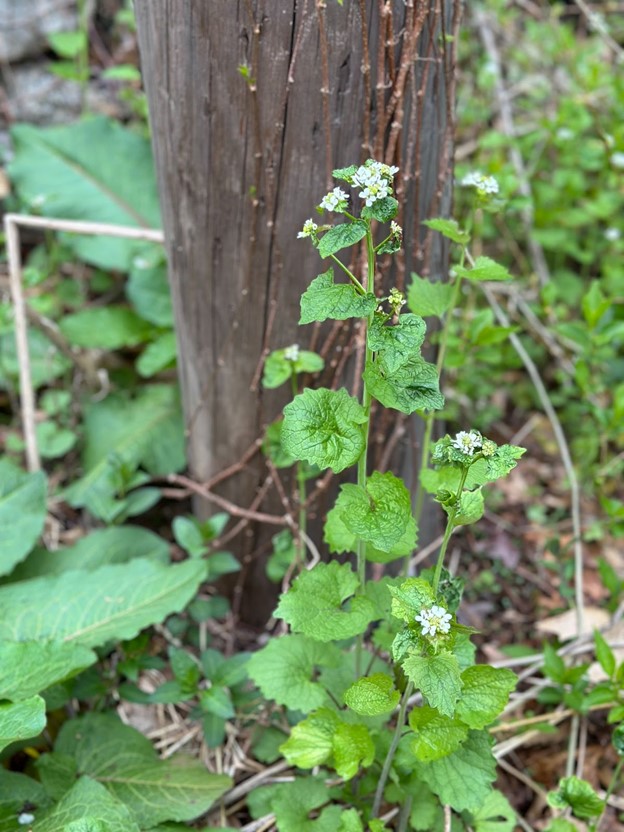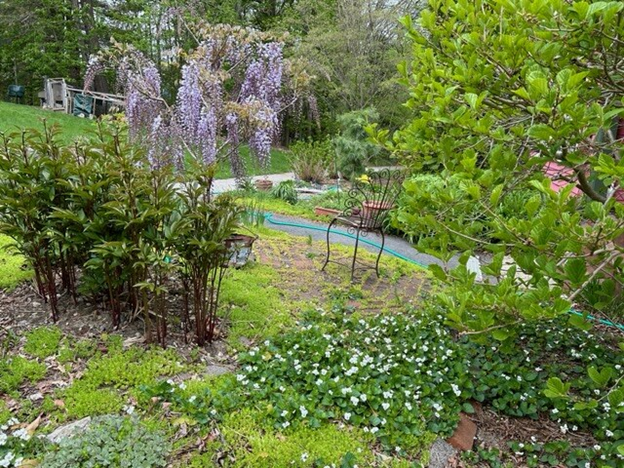Adapted from The Dirt, the newsletter of the Acton Garden Club.
Garden advice for May in Acton:
Do not plant annuals too early. They do not like nighttime temperatures below 40 degrees. The general rule is to plant them around Memorial Day, but if plants are purchased earlier, place them in a protected area close to the house. Keep the pots watered.
Before purchasing perennials for your garden, consider the hardiness zone. We are zone 6b. Check for height, width, light requirements, susceptibility for diseases and insects, and drought tolerance of plants. Do not select plants that are known for having insect and disease problems. Consider adding native trees, shrubs and perennials for your garden.
Most plants (lawns, vegetables, perennials, annuals, trees and shrubs) need one inch of water per week. It is better to water with one or two deep waterings per week than to water lightly each day. This encourages shallow rooting. Having a rain gauge is helpful.
Raise lawn mower cutting height this month to 2½-3 inches which will help keep turf more tolerant of drought. There is a direct correlation between shoot and root growth: the higher the top, the deeper the roots. This also inhibits weed growth. Sharpen your mower blades. Dull blades tear the grass blades, resulting in a brownish appearance.
Edge beds to keep grass from creeping in and to create broad, smooth curves or straight lines according to your preference.
Use organic mulches as they provide many benefits, including moisture retention, fluctuations in soil temperature, weed suppression, and protection from mechanical damage from line trimmers and lawn mowers. Organic mulches such as bark mulch also look attractive and help with the addition of organic matter to the soil through decomposition. Remove established perennial weeds before mulch is applied. Avoid mulch depths greater than 4 inches and do not allow mulch to contact the base of trees and shrubs.
Cut faded flowers from tulips, grape hyacinths. and daffodils. Do not cut bulb foliage, allow it to die naturally (that is, until the leaves are yellow or limp). Do not fold over or tie foliage as this will inhibit photosynthesis and, therefore, the storage of nutrients needed for next year’s flowers.
Annuals and perennials will keep a steady bloom performance if their faded flowers are continually removed, which prevents seed formation.
Get out the peony cages and get them in place early to prevent possible damage as their heavy flowers develop. Cage or stake any other floppy plants as they emerge.
This is a good time to divide large hostas and daylilies into smaller clumps. Snowdrops and Winter Aconites can be divided while the foliage is green.This is the time to divide the late summer and fall-blooming perennials. Prune lilacs, viburnums, deutzia, mock orange, spirea and other spring flowering shrubs when they finish blooming.

May is also the time when invasive garlic mustard blooms in Acton, as shown in the photograph. Pull it before it goes to seed. Garlic mustard produces many seeds, the seeds can remain viable for two years, and the plant inhibits the growth of native species useful to wildlife.
Keep a garden notebook. As you purchase new plants, make a list of their botanical and common names and characteristics such as their height, flower color, soil and water needs. Sketch a map of the perennials’ placement in your garden beds. This map doesn’t need to be graphically accurate but just their general placement. List what plants should be staked, what spring bulbs can be added in the fall for next year’s bloom; create a wish list of plants you would like to add to the garden and whatever else you consider important.
Looking for plant ideas? Consider the Cary Award-winning Plants
Cary Award-winning Plants were chosen by the Worcester County Historical Society as particularly well-suited for our region. The history of the awards is described on the website of the New England Botanic Garden at Tower Hill. “Each year from 1997-2019, Worcester County Horticultural Society coordinated a group of the region’s best plant people to select a short list of Cary Award-winning plants. Named in honor of Shrewsbury plantsman Ed Cary, the Cary Award highlighted landscape plants with proven performance across New England. All the plants are chosen to share key qualities that make them outstanding plants for New England gardens. They are reliably hardy to Zone 4, they have exceptional pest and disease resistance, they are adaptable to a range of cultural conditions, and they are generally available for home gardeners and landscape professionals to purchase from local garden centers and nurseries.” For each Cary Award-winning plant, the New England Botanic Garden site gives a description, plus key features such as growth habit, size, and where the plant is native.
Judy Dembsey is the Chair of Environmental Education and a Member of the Board of the Acton Garden Club.



